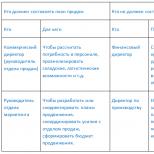Compulsory insurance of property of individuals and legal entities. Federal Law "On insurance"
Insurance is gaining more and more popularity. All civilized countries have long used this tool to protect their lives, health, property from various unforeseen circumstances. In our article, we will consider what voluntary and compulsory insurance of property of individuals and legal entities is, how it is regulated by law.
About the law
The Federal Law "On the Organization of the Insurance Business in the Russian Federation" regulates relations regarding insurance between institutions, enterprises, citizens and insurance companies, as well as the relations of insurance companies with each other. This law establishes the basic principles for regulating the activities of insurance companies.
On the basis of this law, legislative acts of the Russian Federation regulating relations in the field of insurance are also adopted. State social insurance is not covered by this law.
Insurance refers to relations related to the protection of the property interests of legal entities and individuals in the conditions of the occurrence of certain events, called insured events, at the expense of monetary funds, which are formed from paid insurance premiums and contributions.
Forms of insurance
There is voluntary and compulsory property insurance. Voluntary insurance is carried out by concluding an agreement between the insurer and the insured. Insurance conditions are determined at the time of signing the document. Insurance, which is required by law, is considered mandatory. The procedure for carrying out, conditions and types of compulsory insurance is determined by the Federal Law "On Insurance".
Objects of insurance
Property interests may be the objects of insurance:
- personal insurance is related to pension provision, work capacity, health and life of the insured person or the policyholder;
- property insurance is connected with the disposal, use and possession of property;
- liability insurance is associated with compensation for damage caused by the insured.
Insurance of property interests of legal entities and also individuals in Russia, except for mutual insurance and reinsurance, is possible only by organizations that have a license to carry out insurance in the Russian Federation. These are various insurance companies operating in the country. 
Compulsory property insurance is a kind of protection of the interests of the owners of this very property (investments, real estate, equipment, vehicles, cargo, works of art, goods) in the event of certain events. These include a natural disaster, fire, theft, flooding, man-made disaster, etc. Material damage is compensated for by monetary funds, which are formed from contributions from property owners. Property insurance for individuals is most often voluntary, for legal entities it is mandatory. Such insurance implies proportional or full compensation for damage.
Property insurance contract
The contract is concluded between the insurance company and the owner of any property (car, real estate). Before issuing it, they usually assess the value of the insured object. The insurance amount cannot exceed the real value of the insurance object at the time of signing the contract. It can be concluded for a period of 1 year or more with the annual recalculation of the amount of payments and the value of the property. Legal entities and individuals can insure both partial and full object value.
Legal entity property insurance
What does compulsory property insurance mean? Let's consider this question in more detail. Compulsory insurance covers property that is state-owned, objects with increased risk, collateral and vehicles that were purchased under a leasing agreement or on credit. A legal entity is paid damages only if the enterprise itself is not guilty of the fact that an insured event has occurred. The fact that an insured event has occurred must be documented. To do this, a representative of the insurance company is invited to the enterprise, who assesses the damage and draws up an act.
The insurance contract includes a standard list of risks with the possibility of supplementing it in some situations. This document should always cover the following issues:
- the procedure and rules for compensation for damage;
- amounts and insurance assessment;
- insurance liability.
Objects and subjects of insurance protection
Compulsory insurance of property of legal entities has its own nuances. A legal entity with any form of ownership, state bodies or an individual entrepreneur can act as an insured. Also, any insurance company can act as an insurer if it has a license to provide insurance services. The beneficiary may be a person or company that has a financial or proprietary interest in receiving the reimbursement.
The concept and types of property
Property in insurance is things and material values owned, used or disposed of by any person (natural or legal). We are talking not only about a specific subject or object (about a building, car, planting, animal, etc.), but also about a group of objects (for example, a gas pipeline, cargo, money). Property can be movable (everything that moves) and immovable (many buildings, structures, that is, everything that does not move). Insured property - tangible assets that are subject to compulsory insurance (by law) or voluntarily insured.
Therefore, an insurance contract can be concluded to protect movable or immovable property, except for farm animals, perennial plants, crops, crops, and vehicles. For objects that fall into the category of exceptions, there are separate types of insurance, for example, for trucks. This type of protection, if necessary, can be included in the main insurance package. In particular, it is possible to insure products, precious stones and metals.
Protection against property risks
Raw materials, materials and products can be protected in various ways. The first option involves the use of a specific amount of valuables that are not in circulation as an object of protection. The second involves the protection of an object that is in constant circulation. Its nomenclature, quantity and cost are constantly changing. Why is property insurance necessary? It is possible to protect the property of legal entities from the risks listed below:
- collision with a vehicle, fall of an aircraft;
- fire, explosion, lightning strike;
- theft, theft, unlawful act of a third party;
- natural disasters;
- failure of communication systems;
- other risks stipulated by the contract.
Sometimes companies have a special demand for protection against unexpected damage due to water: direct use of a fire extinguishing system, its false alarm, breakdown of a nearby communication system, exposure to liquids and water from outside. 
Property insurance for individuals
The most common object of compulsory property insurance for individuals is a vehicle in case of an accident. This type of insurance is mandatory for everyone who has a car, since an unpleasant situation can happen with a high probability. But here it is important to understand that it is not the car itself that is subject to compulsory insurance, but the civil liability of one driver to another. This type of insurance is called OSAGO.
In addition, residential premises and houses of citizens who are at great risk are insured. The location of real estate in a seismic zone, for example, forces people to insure their homes.
Although there is no compulsory insurance of real estate for individuals, often such an agreement is concluded in connection with the obligatory requirement of the bank at the time of issuing a loan for the purchase of a car or a mortgage loan. Statistics show that only 3% of individuals insure their property in Russia, while in the US and Europe this figure is 90%. Insurance payments cover part or full cost of lost or damaged material assets. The maximum amount of payments is affected by the estimated value of the object, franchise, limits and other factors.
We have considered the types of compulsory property insurance. Let's move on to voluntary.
Voluntary insurance is subject to movable and immovable property, that is, absolutely any thing that has value for the owner. This may include:
- antique furniture;
- objects of art, paintings, canvases;
- jewelry and precious metals;
- Construction Materials;
- agricultural machinery and household appliances;
- sports equipment.
Personal property insurance involves protection against certain risks. 
Risks
Insurance risks can be:
- The occurrence of an accident, as a result of which the property is affected by fire, water and other substances, low temperatures, as well as mechanical effects of foreign objects on the insured object (for example, a tree fell on a car).
- Natural disasters (in the form of earthquakes, floods, tsunamis).
- Attackers destroyed or damaged the object.
- The insured object was stolen.
Rates
Tariffs for property insurance of legal entities are determined by the contract concluded between the insured and the insurer. They depend on several factors: the size of the franchise, the estimated value of material assets, the degree of deterioration, the amount of compensation, the list of risks. You can find out the exact amount after contacting the insurance company to conclude a contract. Insurers offer a variety of conditions, policies of different types, so that a company or citizen can choose the best option that meets their goals.
Property insurance rules legal entities and individuals are established by the legislation of Russia and insurance companies. They contain the following information:
- settlement of disputes;
- general provisions;
- payment procedure;
- clarification of terminology;
- the responsibility of the parties;
- the procedure for concluding a contract;
- the principles by which the amount of insurance payments, the value of property, the amount of damage and deductibles are determined;
- objects of insurance;
- types of risks;
- terms;
- a list of conditions for indemnifying losses when insuring the property of legal entities;
- rates.
Housing and property insurance programs
Insurance companies develop various programs for insuring residential premises and property. With their help, any policyholder can choose the most suitable conditions for the protection of property, compensation for losses .
Municipal bodies and the government are developing special preferential programs that make insurance affordable, increase the attractiveness of this type of service and the security of the population. Financial institutions are developing property insurance programs for mortgage lending. 
State insurance
The interests of the state and citizens are ensured by compulsory state insurance of property, health and life of civil servants of certain categories. It is carried out at the expense of funds allocated for this from the budget of the insurers. This includes federal executive bodies and ministries. The subjects of such insurance include government agencies and individuals (separate categories). It is obligatory to insure military personnel, personnel of the Department of Internal Affairs, employees of the penitentiary system, employees of the tax and fire services.
Production risk is associated with the manufacture of goods, services or products. In this case, business risk insurance will protect the company from various unplanned expenses in the form of increased costs, increased material costs, increased losses, and so on. To protect the offices owned by the company, use the standard terms of insurance. For state compulsory insurance of property of a legal entity, the following conditions must be met:
- documents on accounting and registration of property are drawn up in accordance with the law;
- owner - a state body, entrepreneur or legal entity;
- It is mandatory to provide documents that confirm the ownership of the property.
For the property of a legal entity, protection is valid only at the location or territory specified in the policy. When transferring property to any other place, this must be reported, otherwise the insurance will not cover such property. This is confirmed by the Federal Law "On Insurance".
The objects of protection cannot be dilapidated or dilapidated buildings and structures and the property located in them. Moreover, property that is not suitable for specifics, storage conditions or condition cannot be accepted for insurance, because this will lead to an increase in risk. 
Conclusion
Real estate insurance applies to complexes, buildings, plots, structures, premises that belong to legal entities and individuals. The owner has the option of insuring part or all of the property. Real estate insurance is mandatory for legal entities, and voluntary for individuals (except OSAGO). The method, conditions and amount of compensation depend on the system of insurance liability. The sum insured cannot exceed the appraised value of the object. The contract provides for partial or full compensation for losses arising from insured events.
So, in this article we have considered cases of compulsory insurance of property of legal entities and citizens, objects and subjects of insurance.






